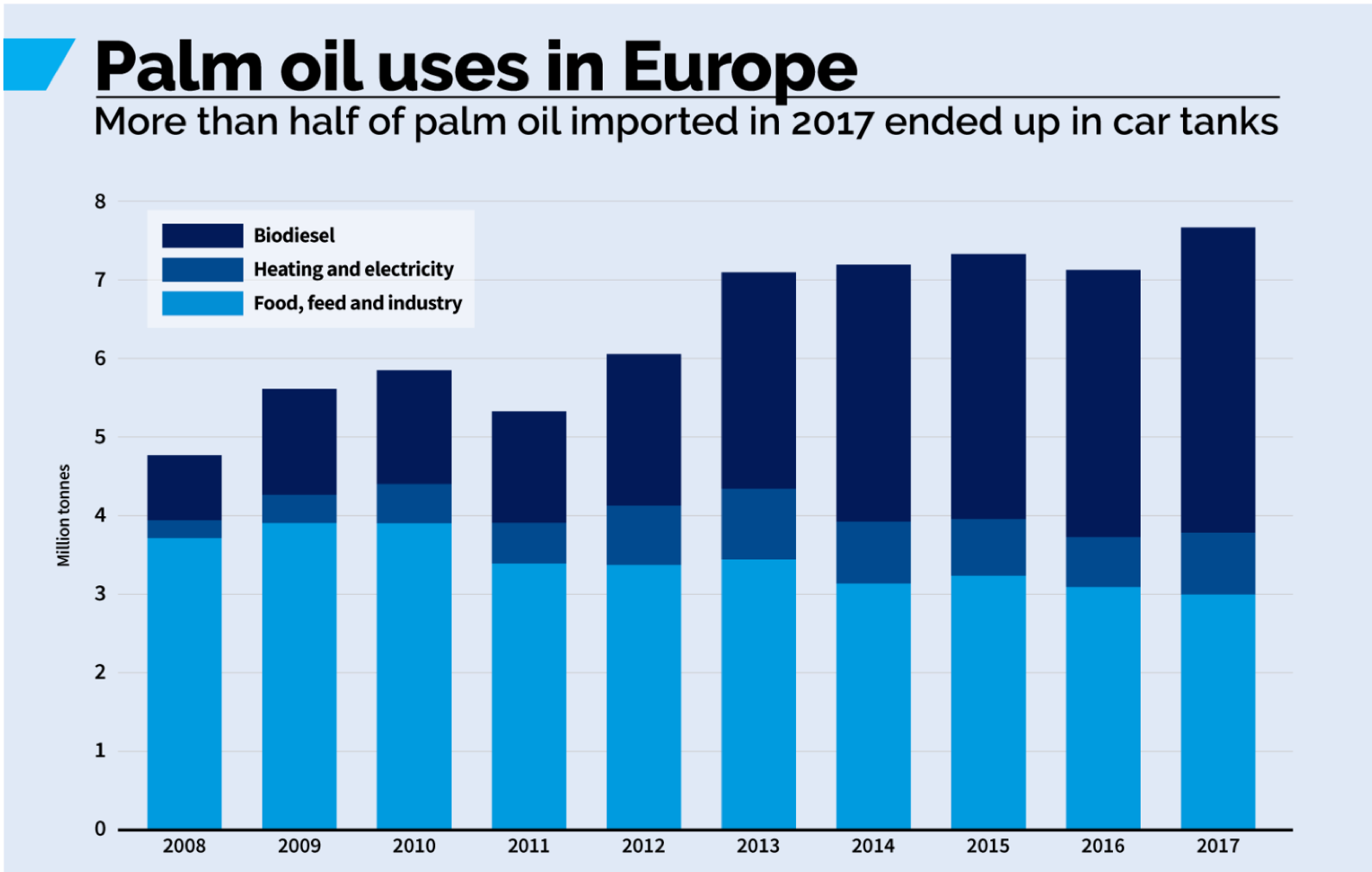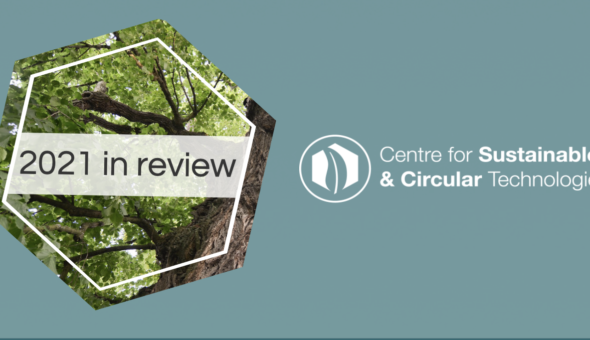Rob Hicks is a PhD student working with Dr Daniel Henk and Dr Chris Chuck on using natural variation and adaptive evolution of Metschnikowia pulcherrima for lipid production from low value plant feedstocks.
As the detrimental environmental and social impacts of the palm oil industry are now so well documented, people are usually pretty interested when you tell them that the aim of your PhD project is to generate a sustainable palm oil alternative using an oil producing yeast. Once people have gotten over the excitement of how cool your project is (and listed all the products which they still use despite it containing the thee-who-shall-not-be-named ingredient), you’re often asked something like:
“Yeah but what about the people who depend on the palm oil industry for employment?”
A perfectly legitimate question… and a question to which, as a scientific researcher who uses adaptive evolution to improve industrially relevant phenotypes of yeast, I’ve never really felt able to give a legitimate answer to. What I did know for sure was that I wanted to be able to answer these questions. It was this curiosity, together with a genuine interest and care about the deleterious effects this industry has on biodiversity, human rights and the climate, which led me to contact the environmental NGO Rainforest Foundation Norway about an internship position.
Why did I want to work for the Oslo-based Rainforest Foundation Norway (RFN)? The answer, I can reveal, is not to see how well a final-year PhD student can financially survive within one of the most expensive cities on the planet; that was just a fun side-project. Rather, I was interested to see how Norway, as a country outside of the EU (and therefore able to set their own biofuel regulations… the trendsetters), was going to address the issue of palm oil within biofuels and how RFN were working to influence this. I had also found reports commissioned by RFN extremely helpful when researching the background for my PhD thesis, so knew they were a very well-informed organisation to learn from (see the cleverly titled reports: Driving Deforestation and For Peat's Sake).
Recently, the issue of palm oil within our foods has been reignited by the (controversially banned) Iceland advertising campaign, which publicised them boycotting the problematic oil from their own-brand products. It is a little-known fact however that although palm oil is incredibly common within the food and cosmetics industry, the sector which is actually driving increased demand, and is therefore putting the most pressure on forested areas, is biofuels for transportation (see below figure). This has been largely driven by the EU’s Renewable Energy Directive, which allows palm oil to be blended as a biodiesel into conventional diesel, and increased domestic palm oil consumption by Indonesia, as it attempts to secure its own palm oil sector amid changing global attitudes and cheap conventional oil prices.

In acknowledgement of this threat, RFN have a devoted biofuels team within which I undertook my internship. After giving my colleagues very specific instructions of “I want to be helpful”, my first task was to generate a report regarding the compatibility of palm-based biofuels within the Indonesian transportation sector, when blended into conventional diesel in high percentages. Slightly out of the comfort zone of someone more suited to the study of cell membrane proton pumps than fuel injection pumps. Next, I generated a report about how waste from the palm oil industry (of which there is a significant amount) can be reintegrated into the sector to lessen its dependence on, for example, coal-fired energy generation within palm oil mills. As a sustainable chemical technologist, this was slightly closer to terra firma.

My EU-based work took me to a two-day meeting in Brussels, where a coalition of NGOs based in exotic countries (countries a darn sight warmer than Oslo, at least), such as France, the Netherlands and Belgium, came together to discuss plans and strategies following the publication of the revised Renewable Energy Directive. This will be an incredibly significant piece of legislation considering its predecessor effectively mandated for the use of palm oil biofuels, but given its length, it is probably not within the remit of this blog to summarise the revised Directive here. What I will say however is that I found this meeting incredibly interesting and was encouraged by the real sense of collaboration between these groups, given how so few people are working on what are, quite frankly, monumental tasks. A worrying/sad statistic I learned was that for every single NGO employee working to keep palm oil out of biofuels, there are likely to be 10 industry ‘lobbyists’ working for the exact opposite.

Finally, I was also able to work on more domestic Norwegian matters by helping to generate the planning document for RFNs future strategy. Here, I was primarily looking at the emerging risks within the international aviation industry. Though no palm-based biofuels are currently used within aircraft, this sector will in the near future be mandated to utilise ‘sustainable aviation fuels’ to offset increasing carbon emissions from an aggressively growing sector. There is great risk however that the governing body responsible for setting the biofuel sustainability criteria may allow for the use of palm oil, which will lead to the same problems encountered within EU biofuels. Considering this is the same governing body which have recently made use of the term ‘clean oil’ to describe certain types of fossil fuel derived kerosene (the term ‘greenwashing’ comes to mind…), this matter, combined with how big the aviation industry is, is a significant concern. Oh, and to make things even more interesting, the aviation industry is not covered by the Paris 2020 agreement.

As for living in Norway itself, the two preconceptions I had turned out to be true: 1. It’s expensive, and 2. Everybody loves cross-country skiing. Beyond these fundamentals however, I found Oslo, and Norway in general, an absolute joy to live in. I was immediately struck with the sense that a work-life balance is of utmost importance, and that the citizens had a genuine, respectful connection to their country and interest in its politics. I had read a few ‘lifestyle’ blogs prior to arriving, which seemed to suggest that due to unspoken rules of Norwegian culture, people could often come across as shy or reserved (some I read had used the word ‘cold’, not my words…), but that couldn’t be further from the truth for the 40 or so people I worked with, who were all equally friendly, funny and accommodating. I can’t stress the ‘accommodating’ aspect enough, given that my conversational Norwegian didn’t progress a great deal beyond explaining what I had for breakfast (brød med ost (bread with cheese), since you asked). This meant that whichever group had the fortunate/unfortunate experience of me sitting next to them at lunch would have to indulge me with their impeccable English.

Did I mention Oslo was expensive? I think so. For this reason, I have to give a big tusen takk (thousand thanks) to the CSCT and the Santander Mobility Award for funding me for this internship. It was an incredibly unique opportunity for me and without sounding too cliché – it wouldn’t have been possible without them.
Responses




Good on you!
The sooner they stop cutting down equatorial rain forest to make way for palms the better.
NZ omport huge quantities of palm nut fodder to feed dairy and beef Livestock when we have any amount of grass!
The problem, I believe is intensive farming methods which is made easier by access to pine nit fodder.
If you can provide a sustainable alternative, bring it on!